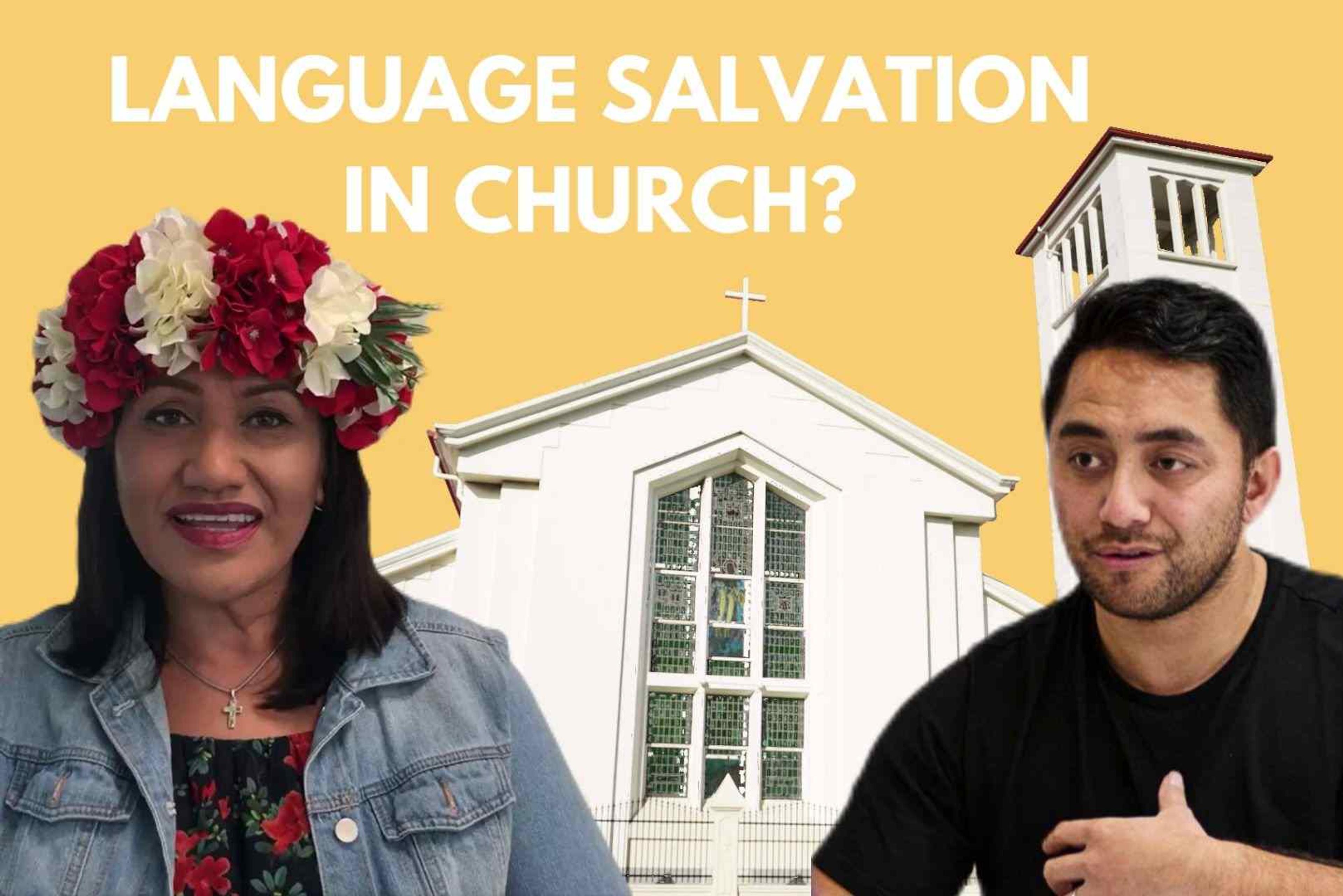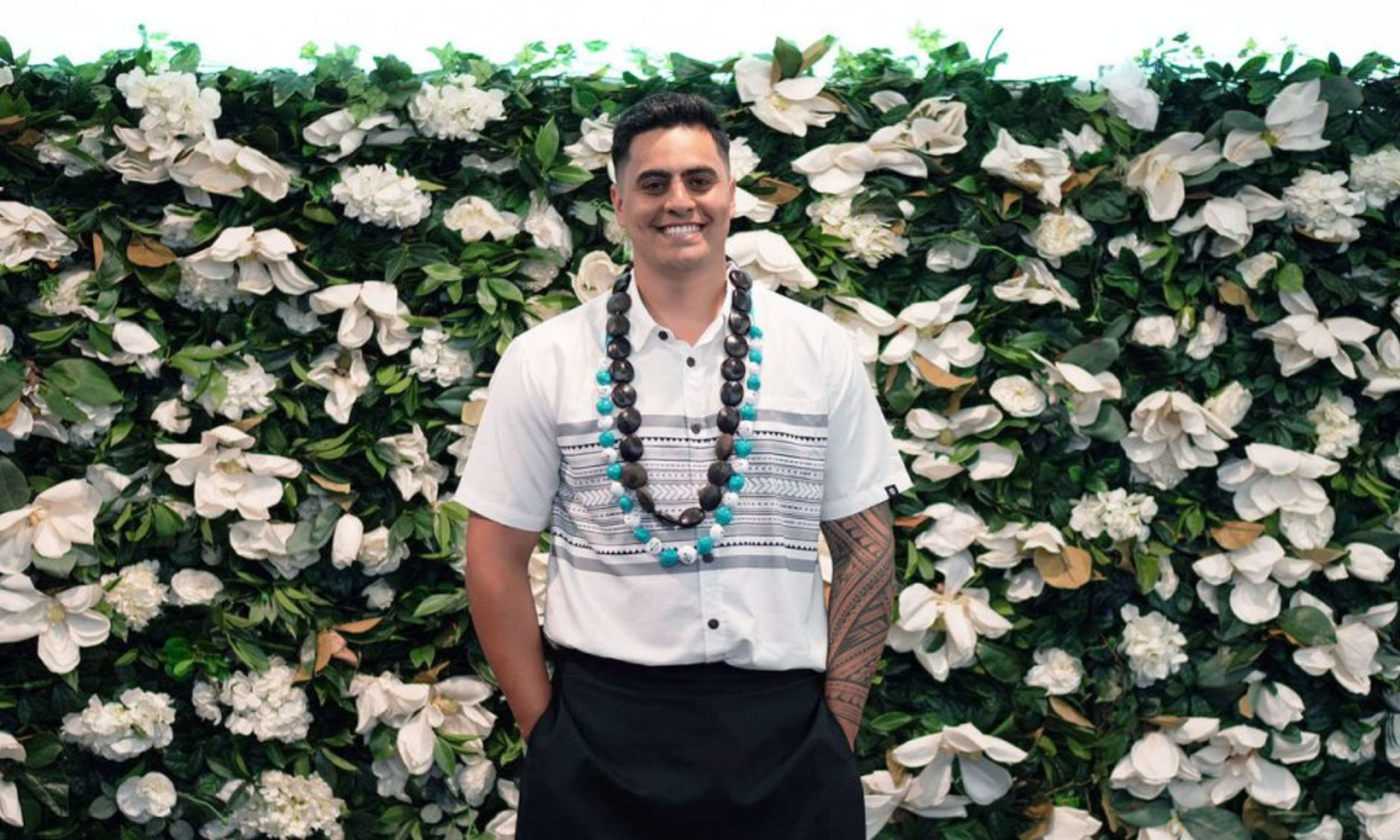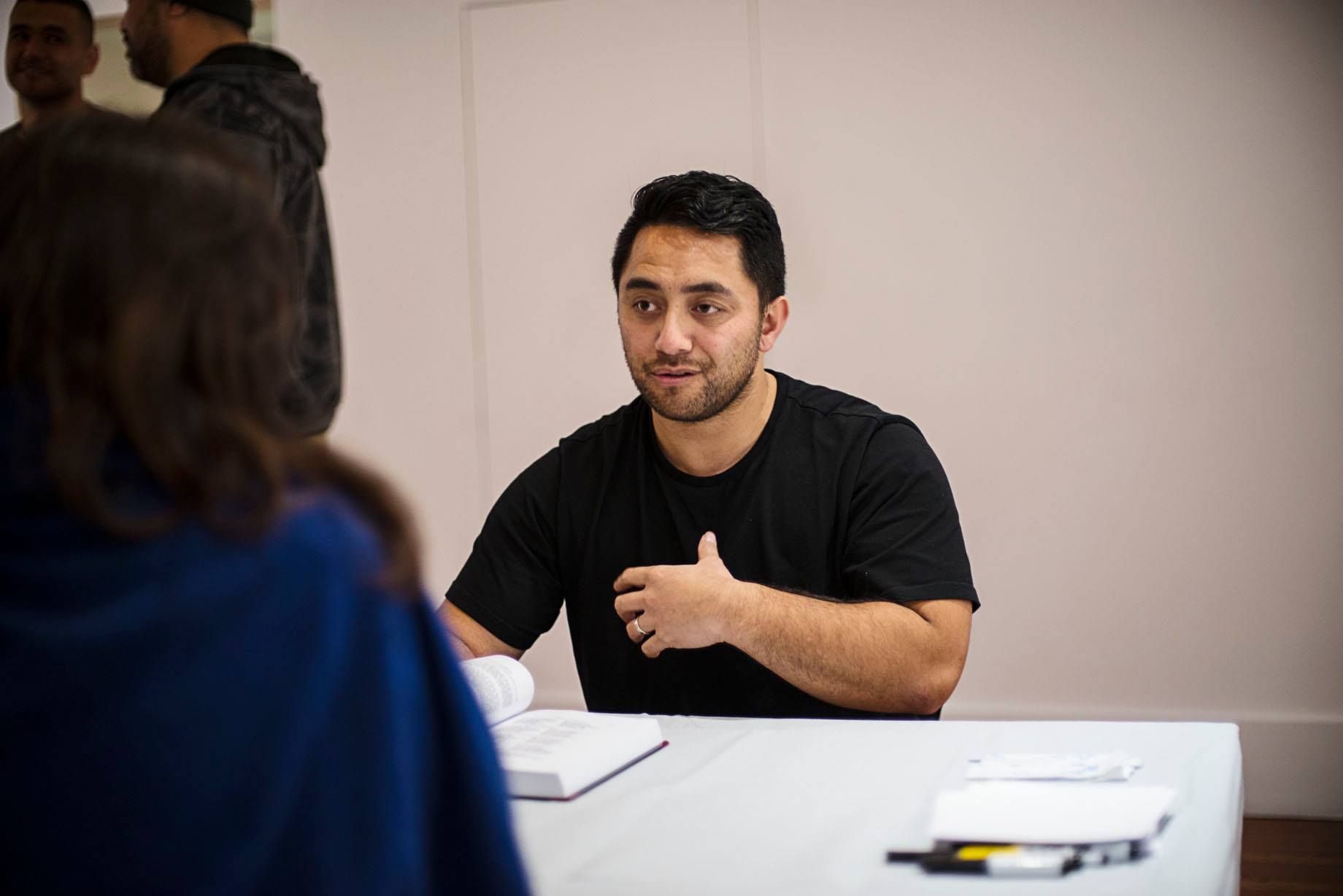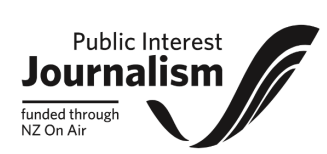

Cook Island's language teacher Linda Zoll (left), the Church of Samoa (centre) and Māori language teacher Jeremy Leatinu'u (right).
Photo/Facebook (left), PMN News (centre) & Raymond Sagapolutele (right)
PMN’s Summer Series: As te reo Māori use rises, can churches save Pacific languages from dying?
Educators say the increase in te reo Māori should be an example for those wanting to revitalise Pacific languages.



Our generosity is our strength but we must spend wisely this Christmas - expert

Excellence and possibility: Meet the new face of Pacific medicine in Aotearoa

Top 10 Pacific Island songs you need on your summer playlist in 2025


Operation Xmas Drop 2025: US and allies deliver hope to remote Pacific communities

Our generosity is our strength but we must spend wisely this Christmas - expert

Excellence and possibility: Meet the new face of Pacific medicine in Aotearoa

Top 10 Pacific Island songs you need on your summer playlist in 2025
Welcome to PMN's Summer Series, where we republish some of our best and most popular stories from the last 12 months - in largely their original form.
As the use of te reo Māori increases in Aotearoa, many in the Pacific community are asking how can they stop the decline in the use of their own languages.
Following a joint study on Pacific languages in Aotearoa, Dr Melenaite Taumoefolau and her peers found that Pacific language use had declined in both the home and church.
At the time of the study's release in 2013, Taumoefolau warned that languages like vagahau Niue (Niuean language) and reo Māori 'Kūki 'Āirani (Cook Islands language) were at risk of being lost altogether and the researchers recommended churches increase the use of Pacific languages in their services.
In 2017, University of Auckland lecturer John McCaffery said vagahau Niue was in a critical state, where less than five per cent of New Zealand-born Niueans could speak their language fluenty.
Today, the Ministry of Pacific Peoples says of the eighty-thousand Cook Islands Māori living in Aotearoa, only nine per cent could speak te reo Māori 'Kūki 'Āirani.
Centre for Pacific Language Cook Islands teacher, Linda Zoll (Mangaia, Rarotonga) says the language is endangered not only from people not speaking it, but also via transliterations.
"We have new words for things that we already have words for," Zoll says.
"For example, growing up I've always known English as Papa'ā. I now hear people saying Engareti. I'd rather we use the natural word," she says.
"I know language does evolve as time goes on but I'd rather keep what we already have and create new words for things that we don't have."
What about church?
Zoll says it is difficult for her to recommend church as a language learning space as she does not know many churches that exclusively speak reo 'Kūki 'Āirani, though she does encourage her students to engage with the popular faith of the Cook Islands.
Alternatively, Zoll provides resources as a part of the Centre for Pacific Languages, such as class-recorded sessions, songs and encouraging learners to join the Cook Island festival Te Maeva Nui.
Pacific Media Network Cook Islands producer, Ngaire Karati (Rarotonga), says the church is beneficial for Pacific communities in Aotearoa, as the diaspora often disconnects second-generation immigrants from their reo.
She says sitting in church among your community, especially your elders, and hearing their stories in the reo helps reinforcement.
"I don't see that happening today and I think that's really sad," Karati says.
Compared to vagahau Niue and reo 'Kūki ‘Āirani, reo Māori which was once also predicted to have been lost altogether, has significantly increased in use.
In 1900 reo Māori fluency was at ninety per cent then dropped to 25 per cent by 1960 due to colonial land theft, the dismantling of Māori communes or iwi (tribes) and state language suppression.
Despite this, reo Māori fluency has risen back to 34 per cent today.
So how has reo Māori prevented its demise?
Reo Māori teacher for Te Wānanga o Aotearoa, Jeremy Leatinu'u* (Ngāti Maniapoto, Vailoa, Matāvai) says there are multiple reasons.
"Te reo Māori has had a bit more practice in teaching language in these types of institutions," Leatinu'u says.
One example of this practice is the Māori Renaissance era that occurred between the 1970s and 2000.
During this period many independent movements started by Māori such as Kōhanga Reo (Māori preschool) and language programmes were done to revitalise reo Māori.
Since then, reo Māori has gained more recognition and achieved better resource support today.
Reo Māori is currently second to English as the most spoken language in Aotearoa, with Samoan following behind at third.
Samoans also make up almost half of all Pacific peoples in Aotearoa meaning a higher population to circulate language with in contrast to Cook Islands Māori (21 per cent) and Niueans (eight per cent).

Reo kaiako (language teacher), Tuilagi Jeremy Richard Leatinu'u. Photo/Raymond Sagapolutele
For Leatinu'u's own gagana Samoa (Samoan lanugage) journey, he's found that there's been less opportunities in New Zealand to build his competency at his own pace.
"If you compared it to language programmes like te reo Māori, they don't have the same resource backing," he says.
"As a language teacher we're able to break down te reo Māori, as much as we can, to align with English.
"That's so that there's a connection for the learner as they're building their understanding of the language."
Leatinu'u says this approach compensates for Māori across the spectrum of fluency, whereas his gagana Samoa journey has lacked that for those on the lower-end of fluency.
"The last thing is the Samoan language is different from the Māori language," he says.
"Maybe that's where the difficulty of teaching it is, especially in a grammatical way as they're two different languages, two different whakapapa (genealogy) and two different tikanga (customary practices) or kawa (ceremonial participation).
"All those things make it a tricky time to learn the Samoan language if you're completely new to it or didn't grow up with it."
Is church our only option for language survival?
Notably, Christian Māori are a minority within the community, markedly different from Pacific communities who are mostly Christian.
Besides attending classes, spending once a month at a marae, consuming reo Māori content like podcasts and shows on Whakaata Māori, Leatinu'u encourages his students to participate in Kapa Kōrero.
Kapa Kōrero is a Facebook page where reo Māori learners and experts get together and exclusively speak reo Māori to create networks and help reinforcement.
Although similar to church, Leatinu'u says there are differences.
"Churches tend to include whole families rather than a group of people who are perhaps students," he says.
"The church is a space where social interactions can happen but the church also has a greater whakapapa (genealogy) behind it.
"In some ways, it is like Kapa Kōrero for being a focal point for people to socialise and gather but there's a whole lot of layers to it which also satisfies other aspects for a person or family."
Leatinu'u says at an institutional level Pacific communites, especially those with endangered languages, could look to Māori revitalisation strategies.
"But even in Māoridom there's always talk about returning back to your marae.
"So there's also the question of how many have returned to their home, their village, touched their mountain and touched the awa (river)."
*Jeremy Leatinu'u is the tuakana (older brother) of the author of this article, Auia Vaimaila Leatinu'u.
